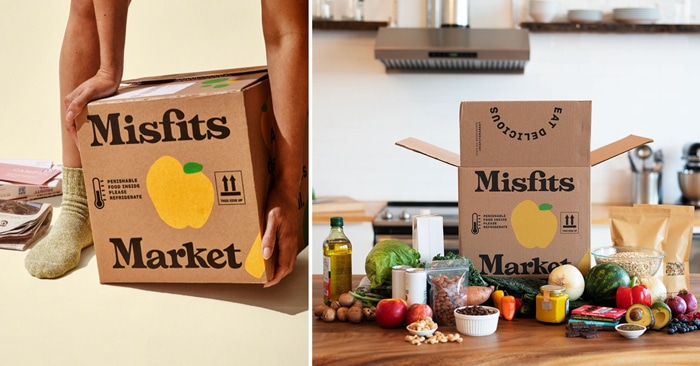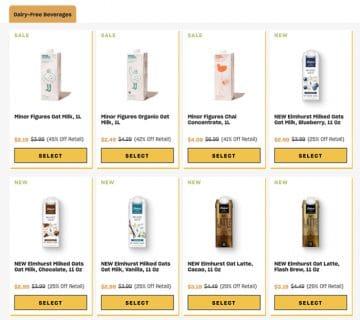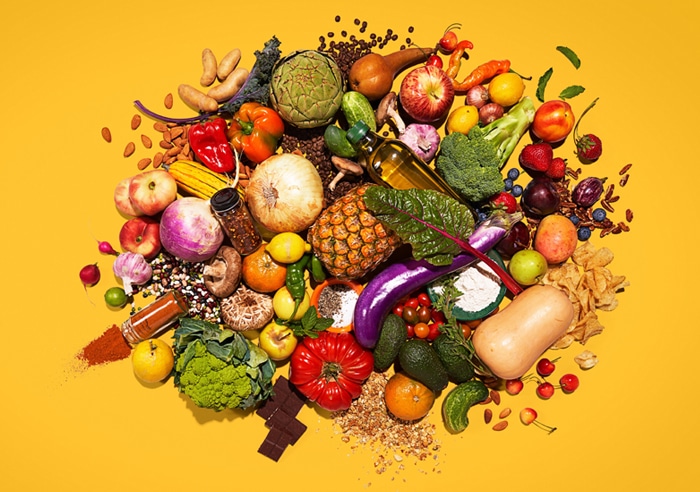Grocery delivery service Misfits Market announced yesterday the close of an $85 million round of capital led by Valor Equity Partners. Additional investors included Greenoaks Capital, Third Kind Venture Capital, and Sound Ventures. The funding will go, in part, towards helping the brand expand further into offering more center store offerings.
The raise brings Misfits’ total funding to $101.5 million. As part of the funding announcement, Misfits also disclosed it will be opening a new warehouse in Delanco, New Jersey, a move that will allow the company to more than double its order capacity along the East Coast and South and into the Midwest. The company currently delivers to customers in 26 states (and Washington D.C.) with four more states expected to come online in the coming months.
Misfit currently has two offerings: The Madness box, which offers 14 different types of fruits and vegetables for 18-22 pounds of produce, and the Mischief box, which offers 12 different fruits and vegetables for 10-13 pounds of produce. All produce offered is organic, non-GMO and “ugly” — deemed unfit to be sold in traditional retailers due to cosmetic issues — or excess produce farmers need to offload.
While customers cannot currently customize what produce they receive, they can select from roughly 150 add on items in the company’s marketplace, each priced on average 25-50% (and up to 70%) less than traditional retail prices.
The company hopes to make the marketplace an even larger part of it’s offering to shoppers. Originally launched in November 2019, Misfit marketplace brand partners have included Minor Figures, Wild Planet, Bob’s Red Mill, Illy Coffee, Peeled Snacks and Deep River. Of the current marketplace selections, roughly 125 are packaged food and beverage products. Though the company does sell some bulk items in “minimal” packaging with just product type, nutrition information and ingredients, the vast majority of the items have branding from the original producer, said Daniel Litwin, Misfits Market’s VP of procurement.
Though CPG items do not have to be organic, they are generally “natural” offerings with their “misfit” nature ranging from having old branding, to being excess products to having a misprinted label. Though there’s no minimum, producers have to provide enough volume that it won’t immediately sell out, resulting in a “poor customer experience,” Litwin said. He added though Misfits can serve as a product discovery platform for customers, his team of six works with brands both small and large, with PepsiCo snack brand Bare Snacks a frequent partner, for example.
“We have a dual mission,” Litwin said, “which is to fight food waste and being an outlet for the growers and producers that need a place for this stuff to go. And then increasing affordable access to natural, organic foods.”
Brands who partner with Misfits can also work with the retailer on marketing promotions. It’s this element that is appealing, Taza Chocolate founder and CEO Alex Whitmore said, in comparison to other discount retailers.
“We definitely see the value of access and educating a different consumer base then we are currently selling to,” Whitmore said. “[It’s] an opportunity to educate that consumer about what we do as a brand and as a manufacturer and bring them into the product family that way.”
Litwin added that by partnering with Misfits, producers can show their commitment to sustainability and reducing food waste, thus actually “increasing their brand equity.”
Since Misfits originally only sold produce the retailer has focused on first finding products in related categories that “make sense,” Litwin said. Current offerings include condiments, sauces, snacks, coffee, pantry staples and baking needs, while CBD infused items, frozen items and raw meat and fish remain off the table, for now. Single serve beverages are a newer category for Misfits, with brands taking part in the marketplace including Sunwink and Kimino.
The goal is to eventually offer shoppers something from every aisle of the grocery store. While consumers may not be able to find the same brands every week, with variation on the SKU level, they will ultimately be able to find something that meets their needs in that category. By scaling up the marketplace and bringing on new supplier partners, eventually shoppers will be able to see more consistent offerings, Abhi Ramesh. Founder & CEO at Misfits Market, said.
“We can be supplier driven and still have a reasonable amount of product on the consumer side because we aggregate across fragmented pieces,” he noted. “Grocery stores are limited by unpredictable demand and finite shelf space. They have to make trade-offs and decisions about what goes where, while theoretically we have infinite shelf space.”


